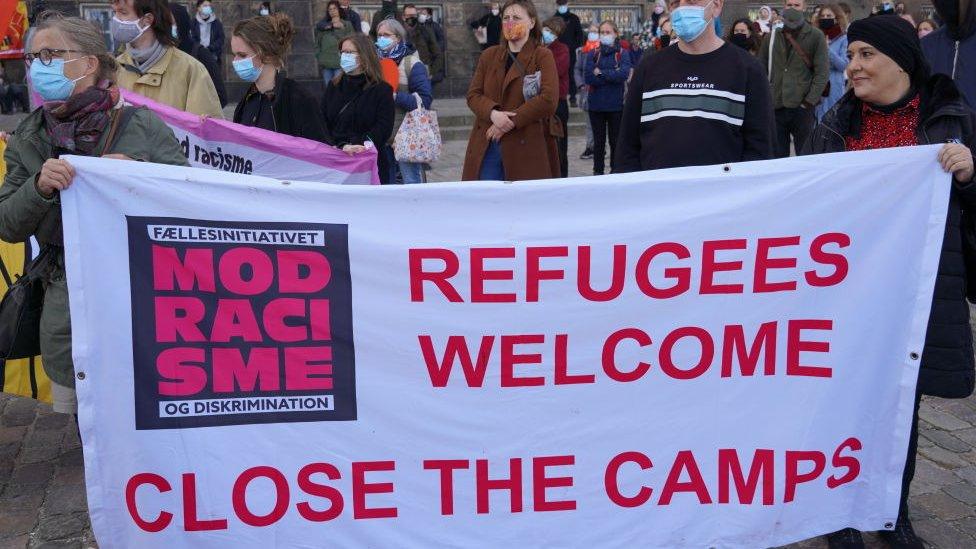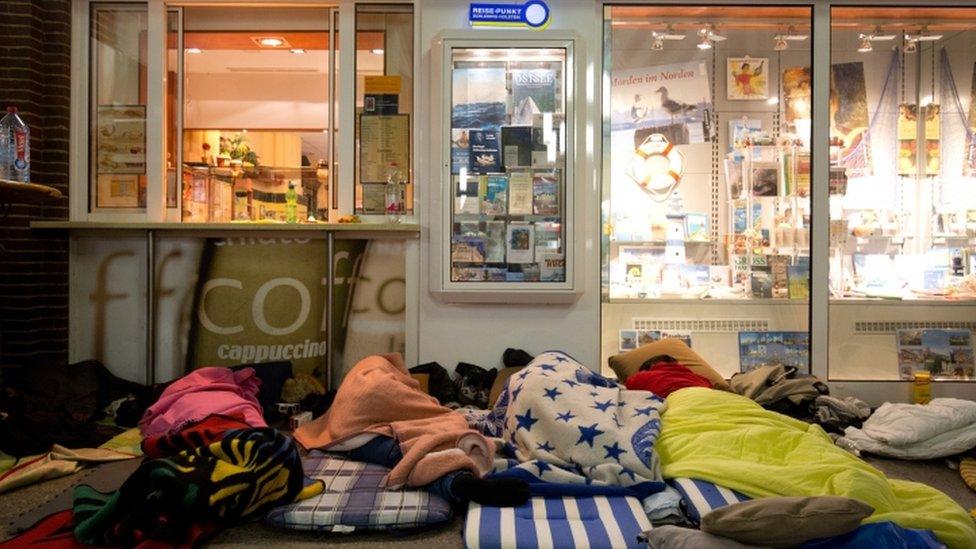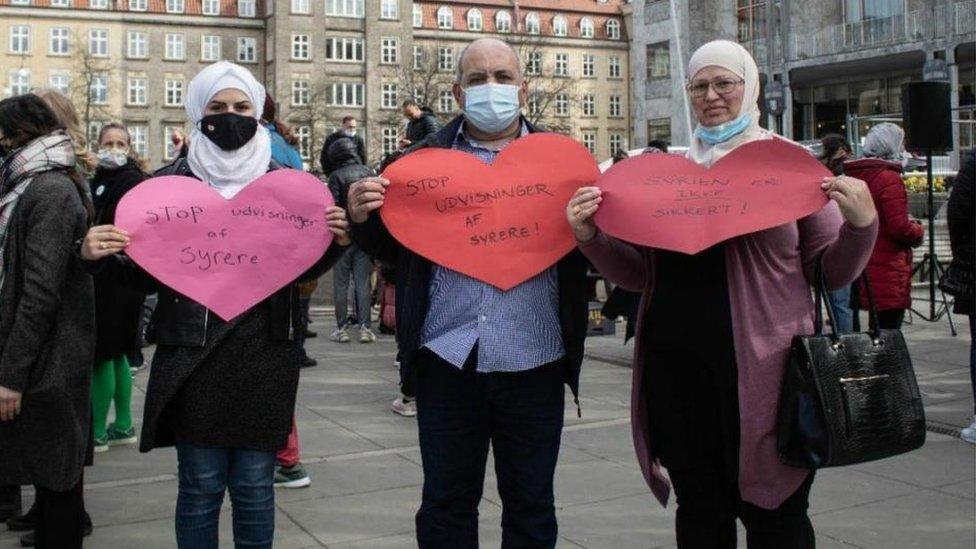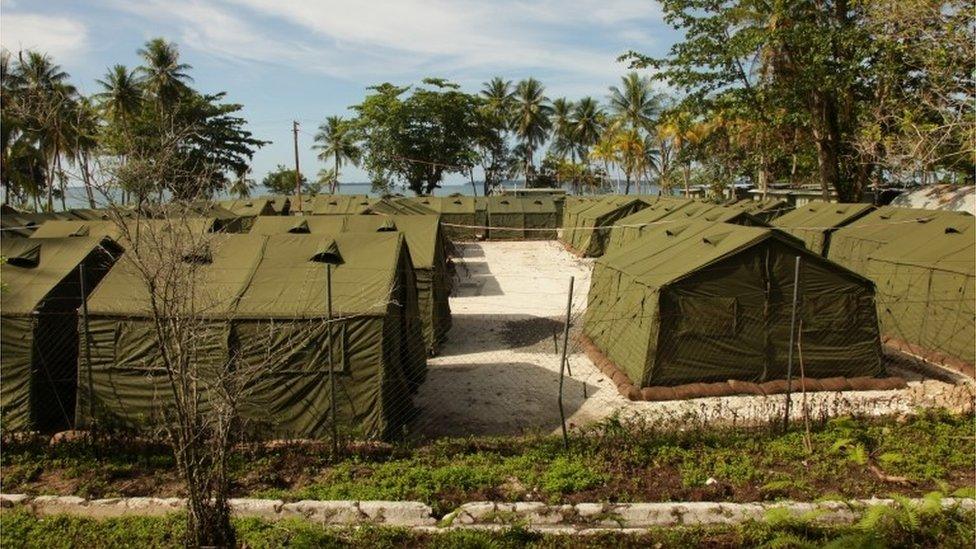Denmark asylum: Law passed to allow offshore asylum centres
- Published

Recent moves to revoke residence status for Syrian refugees sparked protests
Denmark has passed legislation allowing it to relocate asylum seekers to third countries outside the European Union while their cases are reviewed.
The project, proposed by the Social Democrat-led government, would seek partner countries to run camps and fund agencies along migration routes.
But the European Commission said it had concerns about the law, and a leading NGO said it was irresponsible.
Denmark has repeatedly tightened its immigration policies in recent years.
This follows a peak of more than 21,000 asylum seekers arriving in Denmark in 2015.

Denmark's tough immigration policies began after record numbers of migrants arrived in 2015
MPs voted for the bill by 70 votes to 24.
"If you apply for asylum in Denmark, you know that you will be sent back to a country outside Europe, and therefore we hope that people will stop seeking asylum in Denmark," said government spokesman Rasmus Stoklund, quoted by Reuters news agency.
The asylum cases would be reviewed in the third country and the applicant could potentially be given protection in that country.
But the European Commission was critical of the law.
"External processing of asylum claims raises fundamental questions about both the access to asylum procedures and effective access to protection," said spokesman Adalbert Jahnz, quoted by Reuters news agency.
The Danish Refugee Council (DRC), a leading NGO, said in a statement that MPs had "effectively voted in the blind", external, as the model they had backed did not yet exist.
"The idea to externalise the responsibility of processing asylum seekers' claims is both irresponsible and lacking in solidarity. We have repeatedly called on the Danish members of parliament to reject this bill," it said.
The council added that there was now a risk of countries hosting larger numbers of refugees would also opt out.
Denmark recently signed a migration deal with Rwanda leading to speculation that it intends to open a facility there.
Two weeks ago it became the first European country to revoke residence status for more than 200 Syrian refugees.
Danish authorities say parts of Syria are safe enough to return to but the move has sparked protests from activists and community groups.
Last year the UK considered building an asylum processing centre on Ascension Island, a remote territory in the Atlantic Ocean, but decided not to proceed.
Australia has also caused controversy in recent years with its use of camps for processing asylum seekers in Nauru and Papua New Guinea.
Related topics
- Published19 May 2021

- Published27 April 2016
